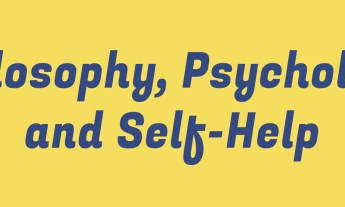Each week, we collect sharp critique, thought-provoking questions or interesting insights in response to TED Talks. This week’s haul includes thoughts on the late Rita Pierson’s call to educational arms, a response to Peter Saul’s thoughtful talk about dying, and personal feedback to Stella Young’s argument that just because she’s in a wheelchair, we really shouldn’t see her as being an inspiration.

Heather White wrote this in response to Peter Saul’s TED Talk, Let’s talk about dying:
“The thing I find interesting about this talk is the failed outcome of the hospital pilot project to train health care professionals to talk about last wishes. After the project ended no one continued the work. To me, this goes to show that talking about death is not the work health care professionals should be expected to do. For what ever reason, they clearly don’t like doing it, so it doesn’t get done.
We need dedicated people to do this work. Yes, they do need training — to be trained to be careful listeners and tactful talkers, but they don’t need to be professional doctors or nurses. The Death Cafe network is discovering large numbers of people who feel comfortable talking about death and last wishes — so why not draw in such people and hire them to carry out such work in the community, at doctors’ surgeries and within hospitals?”
[ted id=1399]

María Victoria Rodríguez wrote this in response to Megan Kamerick’s TED Talk, Women should represent women in media:
“I believe that, in addition to concepts like feminism, equality and empowerment, we should take into account the development of media literacy skills and critical thinking skills when dealing with patriarchal ideologies present in the media. Many media around the world have a patriarchal bias, but it’s only by reading between — and beyond — the lines, that we can spot these sexist and oppressive ideas. For those interested in the language of the media and how it conveys a sexist view through words, there’s a very thought-provoking paper on this in Teun van Dijk’s Discourse as Social Interaction. The chapter, “Gender in discourse,” by Candace West, Michelle Lazar and Cheris Kramarae deals with different sociolinguistic studies that prove how newspapers categorize women and men very differently (with a sexist bias) through the linguistic choices made in media reports.”
[ted id=1473]

Andraea Zambakides wrote this in response to Stella Young’s TED Talk, I’m not your inspiration, thank you very much:
“As a deaf autistic, I had problems with people calling me an inspiration when I was younger. All I was really trying to do was to get along in a world where disability is not the norm. I know that I won’t survive if I don’t! I remember telling people when I went into my first degree — a music degree — to not give me special treatment and to treat me like everyone else. “Objects of inspiration” is a very good way to explain it, and indeed it is a lie that everyone is being told disability is an injustice. I feel that how others treat us is actually the major injustice. I have even been told that I am ‘cured’ because I have a Masters, and because I manage to socialize with people! From my experience, I have found that people either treat us as an inspiration or they don’t want to know and push us out of the world. I find these two extremes really difficult, and it makes life hard. Like Stella Young, I wish that there was a world that disability was the norm.”
[ted id=2017]

On Facebook, Tracy Wheeler also responded to Stella Young’s TED Talk, I’m not your inspiration, thank you very much:
“Good talk. At the age of 15 I was given a Child of Achievement award just because I had had an operation related to my disability. It was a pioneering operation but the achievement was the surgeon’s, not mine. It wasn’t about bravery or overcoming anything; it was just a necessary operation and I was just a kid on the receiving end of a medical procedure. There are lots of things that warrant an achievement award, but living with my disabilty isn’t one of them.”
[ted id=2017]

Also via Facebook, Ines Goldberg wrote this in response to Rita Pierson’s TED Talk, Every kid needs a champion:
“She’s a great educator. The next question to ask is: how can we make it so that teachers have the space to grow in this way? If we just leave it at the idea that some teachers just naturally have it and some don’t, we’ll be missing important things to work on. There are very many obstacles in teachers’ way (emphasis on outcomes, constant assessments, teaching to the test, etc) that put the onus on them for absolutely everything. This bureaucratic and administrative stress (coming from people who themselves may not even be educators) hampers how much emotional energy they have left. Teaching is not a high paying job; people who go into it mostly do so because of a love of teaching. I would be careful to take the analysis beyond individual talents.”
[ted id=1728]
Post your thoughts alongside a talk or on social media; we read everything and will publish a collection of feedback each week on ideas.TED.com. (Note: comments are lightly edited for spelling and grammar.)











